For denizens of the internet, I think we’ve done a pretty good job of focusing on the positives in these Glass Candle dialogues of ours so far. But today we’re talking about Dorne. So, yeah. We will judge its merits, or lack thereof, but we will also give Game of Thrones some credit and discuss these characters on their own terms, as people in this fictional world.
Petra: Dorne is a painful topic for me because it’s an aspect of Martin’s world that I really wanted to get invested in. I love the idea of a Moorish Spain analogue in the otherwise Anglocentric Westeros. I love the idea of its progressive culture and of a plot driven forward mostly by women. Yet Dorne fell flat for me in both the books and the show.
Luka: I’m fond of Dorne in the books — conceptually. This may be controversial, but the introduction in “The Captain of the Guards” is one of my favorite chapters, as Oberyn’s three eldest bastard daughters come to persuade Doran to retaliate for their father’s murder: Obara demands they march to war; Nymeria suggests a more surgical strike, by sending in Tyene to poison the top Lannisters; and Tyene advocates marrying Myrcella off to Trystane and proclaiming them Queen and King of the Seven Kingdoms, forcing the Lannisters to march south and fight a war in Dornish lands. These are not complex characters, but we get a good sense of what they’re all about. It’s an exciting, perfectly succinct plot introduction, which you can say about little else in this novel … but then it goes nowhere purposeful for two entire books until the end of A Dance With Dragons.
Luka: But what about the meat of the plot? What about Arianne’s thwarted conspiracy? What about Quentyn’s doomed quest to Meereen? It holds thematic significance, but themes alone don’t make a story. Narratively, it’s a bunch of faffing about, making time, until Doran reveals his plans. Quentyn gives us a lovely view at the horrors of war and then promptly dies, while Arianne’s machinations have no consequences — or at least none that warrant the pages spent on it. The Greyjoy chapters, by contrast, are arguably slower, and also lack a climax, but they were advancing in a particular direction all the time. With the Martells, Doran’s plan with Quentyn failed before it even started, and Myrcella got wounded, which will have a fallout but, oh boy, was that a long way around to get there. In the show, the Dorne plot is framed as Jaime’s story, with the Martells and Sands serving as side characters; the story arc is introduced well enough and concludes in a beautifully tragic way with Myrcella’s death. Nonetheless, the middle part is fluff yet again, and bad fluff at that. The Dornish then get their own political plot in season six, with the coup and the Targaryen alliance, and there is no fluff in the middle … because there is nothing in the middle, which was, I guess, an improvement?
Petra: Ellaria and the Sand Snakes seemed to be of one mind, with the single motivation of revenge. The book does take a more nuanced look at revenge, deconstructing the idea. Ellaria, who is a very different character, has a great speech about the nonsensical, endless cycle of revenge. That’s what I liked the most about Dorne, aside from the concept. Surely that’s something the show could’ve dealt with, and they just didn’t.
Luka: Well, they did — just not very well, at least not at first. I do miss that speech. There isn’t much substance to Ellaria otherwise, unlike Indira Varma’s version, so anyone could have said that in the show. But no one did! Though, to be fair, the show’s Doran, who didn’t harbor ulterior motives and truly believed revenge was pointless, came pretty close. He did point out Oberyn got himself killed and that was it. And the revenge theme was explored further: in the end, Ellaria’s attempt to avenge Elia and Oberyn resulted in the extinction of their House and the brutal death of the Sand Snakes, including Ellaria’s daughter, whom she was forced to watch die, as part of Cersei’s own monstrous revenge. Basically, Doran and Ellaria switched places in the show, as Doran took the pacifist role, while Ellaria took up a number of mantles — the doomed plotter, like Doran probably is in the books; the reckless avenger, like the Sand Snakes and Darkstar; and the female lead with a plan for Myrcella, like Arianne (though a very different plan.)
Petra: But the show was so bent on condensing that storyline and pushing it forward that all these potentially nuanced characters felt like caricatures, like cardboard cutouts.
Luka: Especially in the middle of season five, the Sand Snakes were henchwomen. It’s obvious the writers hadn’t planned to include this story for long. It wasn’t thought-out.
Luka: Even if they were thinking of including Dorne as Targaryen allies at some point, the storyline in season five was there to give Jaime something to do — marching around the Riverlands for a few chapters doesn’t really translate to much screentime. Jaime is a main character in the show who can’t just largely disappear for a few seasons. So they gave him a storyline exploring his fatherhood, with Myrcella and a bit with Tommen, and then about how he’ll measure up as a Lannister, against the Faith Militant and the Blackfish. If you see it as Jaime’s story, the lack of Dornish characterization starts making a lot more sense. It doesn’t excuse the results, but it does help explain them.
Petra: The writers tried to ease us into this world. In A Feast For Crows, the two storylines that appear out of nowhere are the Greyjoys and Martells. They both expand the world, but in a way that many consider jarring. The show tried to fix this by bringing us into these parts of the world through pre-established characters. We followed Theon back to the Iron Islands for the Kingsmoot and we followed Jaime to Dorne. This approach reintroduced the ironborn to the plot quite organically; it just didn’t work for Dorne. I think it would have been better if we followed Myrcella to Dorne in season 2.
Luka: Honestly, I wouldn’t have wanted that. Granted, they could’ve made her a main character somehow, though I can’t imagine what she’d have done for three or four seasons but I admit they could’ve pleasantly surprised me. That said, the character as she was in the first few seasons was barely more than an extra. She got more to do in season five, and that was great, but I don’t know that I needed more. The same goes for the Martells: I don’t think we needed more Dorne, or less Dorne for that matter; I just think we needed better —more intelligently structured and written— Dorne.
Petra: You have Jaime and Bronn trying to rescue Myrcella as Ellaria and the Sand Snakes try to kill her. Framing most of these characters as antagonists was an issue.
Luka: If you’re bringing in a main character to introduce us to the Dornish people, which may be the one major decision the writers made in the adaptation of Dorne that I totally agree with, it only makes sense for many of them to be antagonistic to this character, not only because of the political circumstances but because, when you’re telling a story, you do need drama. That said, Doran, Trystane and Areo Hotah weren’t framed as bad guys. They were antagonists to Ellaria and the Sand Snakes, but not to Jaime or Bronn.
Petra: But Ellaria and the Sand Snakes were much bigger players. We’ll never know. Maybe a storyline told from Myrcella’s perspective could have been interesting, maybe not, but that would have at least given us a chance to organically enter the world of Dorne and meet each of the Sand Snakes in a non-antagonistic light. Instead, they went with this botched princess rescue which … oh man, that was bad. Of all the storylines they could have gone with, having the blonde white guy fighting a bunch of coded Muslims to rescue the blonde princess was really fucking weird. I’d just love to know what the writers were thinking when they decided, “You know, we won’t have Arianne trying to crown Myrcella. We’ll exclude her and have Jaime try to rescue her instead.”
Luka: I never considered that. It is problematic. That said, I’d still include Jaime. In the books, the Crown sends a few Kingsguards at different points, Oakheart and Swann, and something along those lines is necessary to incite the drama, but you can’t do much with these nobodies in the show, so sending Jaime instead made sense. Also, as I mentioned earlier, you can’t do much with those few chapters in the Riverlands, especially as Jaime has always had more screentime than he’s had pages per book.
Luka: As for Arianne, I’d rather she had been a composite of all the Sand Snakes.
Petra: Sort of like what they did with Loras, Willas and Garlan Tyrell?
Luka: Yes. Not because I’m fond of Arianne, but because if you are not going to spend a lot of time there you should have fewer characters. Call her Arianne, Tyene, whatever. It’s a supporting character so Ellaria doesn’t have to soliloquy. You don’t need three Sand Snakes, let alone five, or the dozen other Dornish characters from the books.
Petra: You’ve told me before that you’re not as thematically minded as I am. When I’m trying to figure out why a storyline doesn’t work, I try to break it down thematically. With the books, I at least liked the progressive “girl power” component. There are bastards who are accepted and have a proper place in society, Dornish culture is much more sexually liberated, and the plot hinges around a woman breaking all the rules to crown a princess queen. I didn’t like that Dorne was framed in such a negative light in the show. The women weren’t there to vouch for the princess, but to kill her.
Luka: Arianne wasn’t interested in crowning Myrcella to vouch for her, empower women, or for any other altruistic reason. She was using her as a pawn. In the fifth book, when Tyrion is deciding whether to go to Daenerys or not, he considers traveling to Dorne instead to crown Myrcella, but he quickly casts this idea aside because “to crown her is to kill her.” Arianne may as well be signing Myrcella’s death sentence.
Petra: True. Altruism is pretty sparse in Game of Thrones. Still, I can’t help but read into the fact that the showrunners took a storyline in which a woman tries to crown a girl queen of a patriarchal society, removed her character and framed her cousins as antagonists to – and I’m just going to emphasize this again – a blonde white guy.
Petra: Also, the status of the bastards and the sexual freedom weren’t really addressed.
Luka: Well, they were, but back in season four. We heard Oberyn and Ellaria discuss these issues at length, in their many brothel scenes and at Joffrey’s wedding.
Petra: Ellaria’s sexuality was framed differently from Oberyn’s, though. She murdered Myrcella by kissing her. That’s a telling way for a bisexual woman to kill someone. There’s a long history of female villains killing their victims with sex, from succubi right on up to Batman’s Poison Ivy. I think it’s interesting that Oberyn’s pansexuality was part of what made him a fan favorite yet Ellaria used her sensuality to assassinate a young woman. Though, to be fair, she did have that wonderful conversation with Jaime where she reminded him that no one would have had a problem with his relationship with Cersei if it were a hundred years ago and his name was Targaryen. And they reframed her sexuality in season seven through her interactions with Yara.
Luka: Yes, that was great. And we got the line “A foreign invasion is underway!” At last, the writers learned to lean into the Dornish cheessiness appropriately.
Petra: I think the writers took pains this past season to readdress the problems that people had with the Sand Snakes, and to a lesser extent with Ellaria, as best they could, provided they couldn’t go back in time and slap their former selves silly.
Luka: They resolved that plot as well and as quickly as they could. The Martells’ involvement was boiled down to the bare essentials. Ellaria and Doran’s conflict came to a bloody conclusion and the remaining characters joined Daenerys’ armada. They did as little as they could in order to not fuck it up further, which may have been wise.
Petra: Yeah, I don’t think spending more time in Dorne to try to retroactively flesh out those characters would have worked but provided how quickly they tried to tie it all together, I thought they did a good job. I like the poetic irony of the Sand Snakes’ deaths; the fact that they were all killed with their signature weapons was a nice touch.
Luka: Their fight with Euron redeemed their fighting ability too! Their choreography was some of the best we’ve ever seen on the show. It made up for that horrendous courtyard kerfuffle in season five. Granted, it wouldn’t have been that bad as a casual fight; it was so disappointing because the confrontation had been set up for episodes.
Petra: I’d assumed they were going to die in the sea battle and I’d wondered ahead of time how these supposedly highly trained warriors weren’t going to come across as incompetent (again) if they were all killed by a single man. So, I liked that Obara and Nymeria both got in some really good hits before they died. Their deaths were also afforded some poignancy. We got that beautiful shot of their bodies on the ship’s prow. The show gave these deeply unpopular characters as good a send off as they could.
Luka: If we all had somehow missed their original scenes and then watched their last ones, I don’t think anyone would have any inkling of how poorly received these characters had been. I think they were handled very well as tertiary characters supporting a secondary starring cast member, which is what they should have been all long. In a way, they were, but we didn’t expect that. Book fans got a Jaime storyline with a subpar Dornish backdrop when they were expecting an actual Dorne story; whether you thought it was good or not, there was a Dornish-centric story there.
Petra: Part of me wants to like the Sand Snakes more than I do for the sake of the actors.
Luka: Oh, me too!
Petra: I feel so bad for them. Especially Keisha Castle-Hughes. She was a fan of the books and campaigned hard to get the role.
Luka: Yeah, each of them developed detailed backgrounds for their characters. It’s a pity. I think the actresses did a good job with the material they had but the writers didn’t do enough with them. They just weren’t interesting enough foils for Jaime and Bronn. They worked better in season seven as supporting characters in Daenerys’ storyline.
Petra: The Dorne storyline, in both versions, is a hodgepodge of squandered concepts and characters. That’s sadly my lasting impression of Dorne: missed opportunities.
Luka: Let’s talk about how all of this began: with Oberyn Martell. He had one of the best character introductions in the show, I’m sure you’ll agree, but I don’t know how you felt about him in the books. He didn’t make much of an impression on me, truth be told.
Petra: I’ll be honest: in my reading of A Storm of Swords, Oberyn was lost in a sea of new characters. There were so many new names getting thrown at me that Oberyn didn’t stick out. Before that, I knew through cultural osmosis that a guy eventually got his eyes popped out but I didn’t know it was Oberyn. All I really remembered from him in the books was his story about meeting baby Tyrion, because it was so hauntingly sad.
Luka: Which was very cleverly adapted, delaying it to the perfect moment, when Tyrion is at his lowest point, instead of during their very first meeting, which fell a bit flat.
Petra: And in the book he recounts this in a really callous way, as if he’s trying to antagonize him. I absolutely love the way they adapted it to be so emotionally affecting.
Luka: As he begins speaking, you might think that he’s trying to kick him while he’s down, but then that line comes in: “That’s not a monster. That’s just a baby …”
Petra: It works on so many levels. There is the plain, original reading that little Oberyn was disappointed that he wasn’t getting the freakish entertainment that he’d been promised. But also, while children aren’t sweet, empathetic angels in Westeros or real life, they are children, so little Oberyn and Elia could see how nonsensical the grownups were for thinking that Tyrion was a monster for being different. And Pedro Pascal’s delivery just … rips my heart out and eats it in front of me every time.
Luka: And his scenes with Tywin, Cersei and Varys were absolute gold. Classic Game of Thrones one-on-one conversations. I think that’s part of the reason many of us were so disappointed in Dorne. Oberyn had set the bar for Martell characters pretty high. What we got wasn’t good; but the fall was higher because Oberyn had risen so high.
Petra: Do you think Oberyn played too much into the exotic, sexy Hispanic stereotype? The most hypersexualized male character was coded as a Spanish moor. But it’s not my place to feel one way or another about it. As a Spaniard, did it strike you that way?
Luka: Not really. With Dorne, Martin and Benioff & Weiss wanted to show more of a Mediterranean culture, and that kind of sexuality is a real aspect of it.
Petra: Alright, then. That was easy. I certainly like how Dorne accommodates its sexual liberation into its culture; the way Oberyn tells Cersei and Tywin that Dornishmen don’t despise their bastards. They love their children and that’s all there is to it for them.
Luka: I would have loved to see Oberyn interacting with his daughters. If I took the reins of this adaptation, which, to be fair, is a tad beyond my abilities —
Petra: We’re nerds on the internet; imagining we’re writing the story is what we do.
Luka: I would have had one of the Snake Snakes, or an amalgamation of the three we met, to accompany Oberyn and Ellaria to King’s Landing, so we saw their relationship. That’s kind of why Ellaria had a larger role in the show, too; to set up the revenge plot. I know a lot of people missed her speech about the cycle of violence, but that really was her only relevant scene in the books. I don’t consider the changes made to her in the show character assassination because she wasn’t much of a character to begin with.
Petra: The Ellaria on the show was certainly more interesting. Now that she’s gone and her arc is complete I can say that she was probably one of the most dynamic characters on the show. In season four, though she had some venom against the Lannisters, on the whole she was pretty laid back; she was a woman I’d like to go on vacation with.
Luka: She loses that when Oberyn dies.
Petra: She cuts her hair, which is an age-old symbol for “something horrible’s happened.”
Luka: It symbolizes a rite of passage, or a reaction to trauma, especially for women.
Petra: So now she’s full of hate. She kind of cooled off in season seven, when we see her with Yara and we had her death, which was simultaneously richly deserved but also tragic. You can’t not feel sorry for someone in that situation. We already discussed it in our dialogue for “The Queen’s Justice.” There’s always something compelling about a character who is determined to avenge a loved one and, in doing so, loses another person they love in the process. I don’t want to get schmaltzy but it’s sad to consider that if Ellaria had accepted Oberyn’s death then she and her daughter would still be alive and well in Dorne. In trying to avenge one person she loved, she lost everyone else.
Luka: And herself too, if not her life. Though she probably wishes she’d died.
Petra: In the end, Ellaria’s arc is this really poignant story about the cycle of revenge and how it never ends well for anyone. For loss of Lyanna, Elia died; for loss of Elia, Oberyn died; for loss of Oberyn, all the Martells and their Sands died — Doran, Trystane, Obara, Nymeria and Tyene — except for Ellaria, whose fate was even worse. The Dorne storyline turned out to have thematic value after all.
The post Glass Candle Dialogue: Dorne, from the Martells to the Sand Snakes and beyond appeared first on Watchers on the Wall.
Via http://watchersonthewall.com
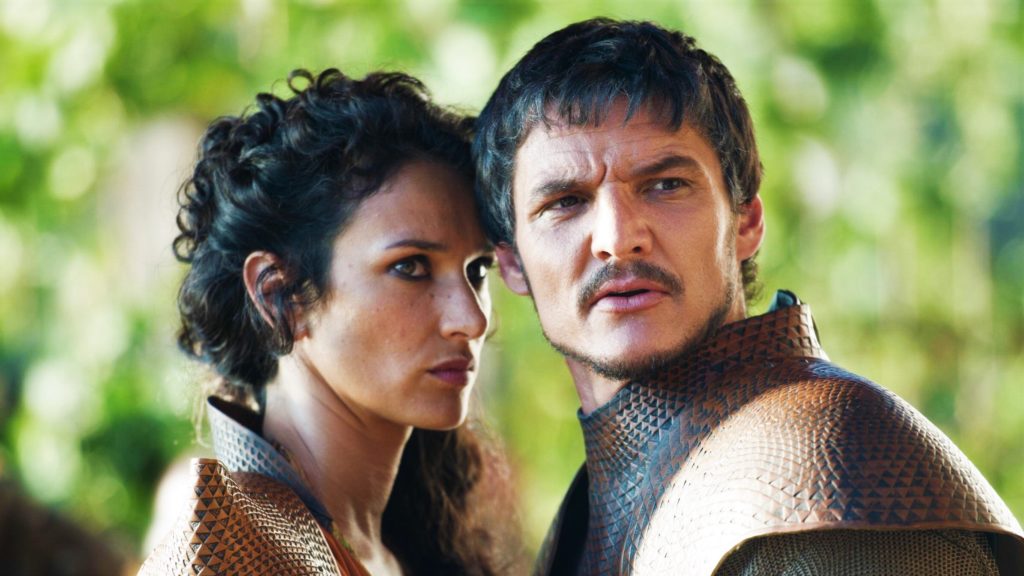
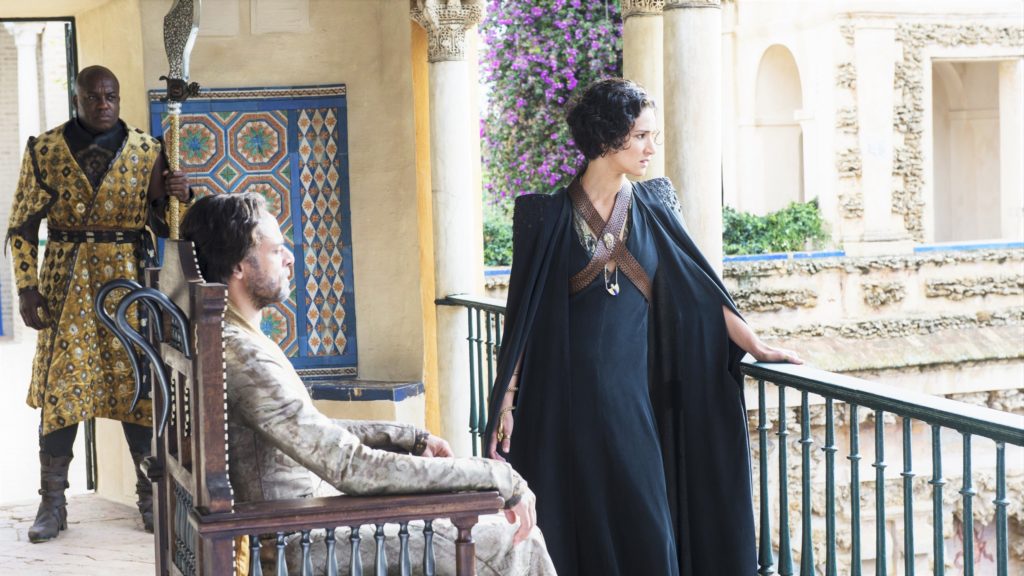
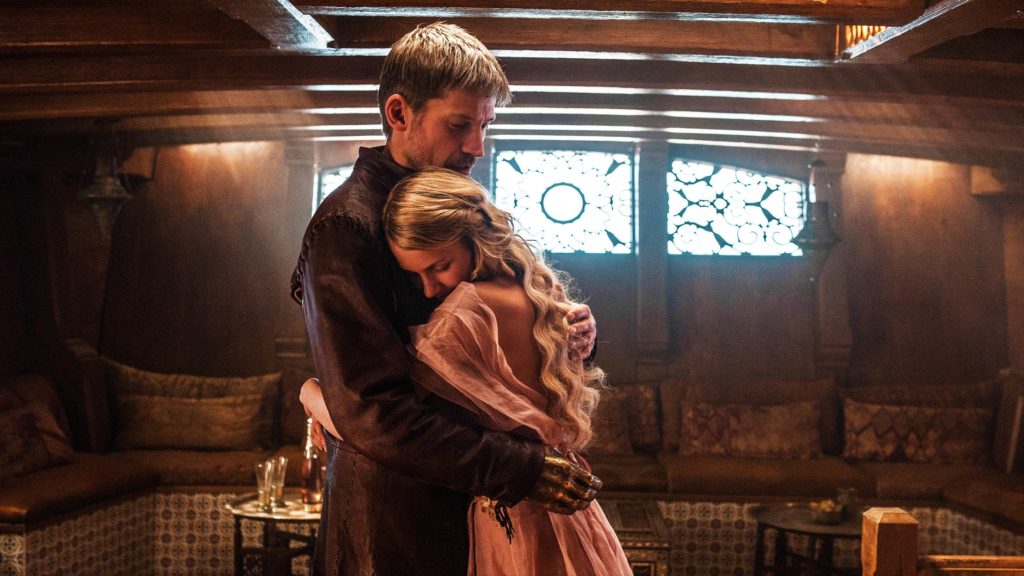
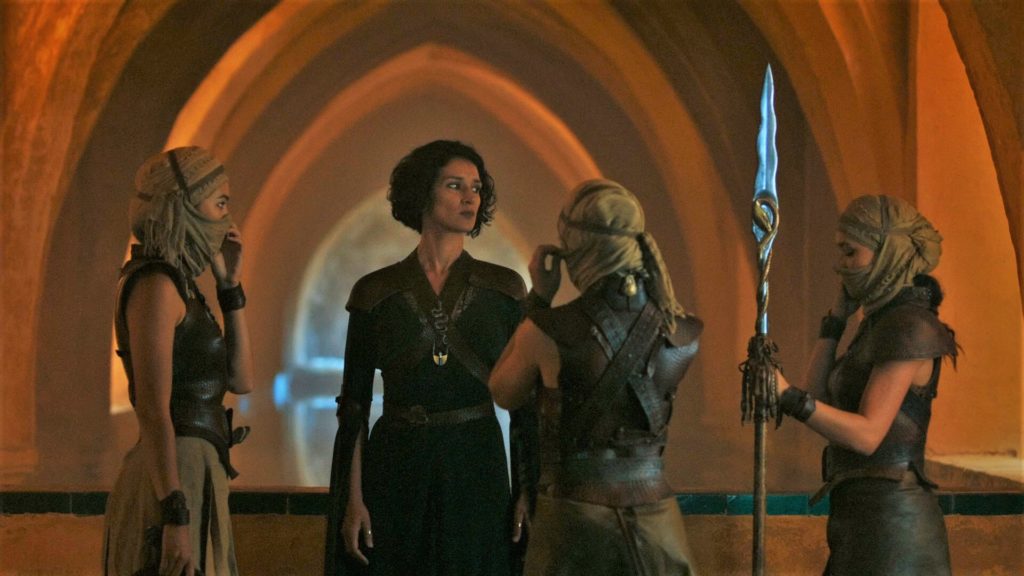
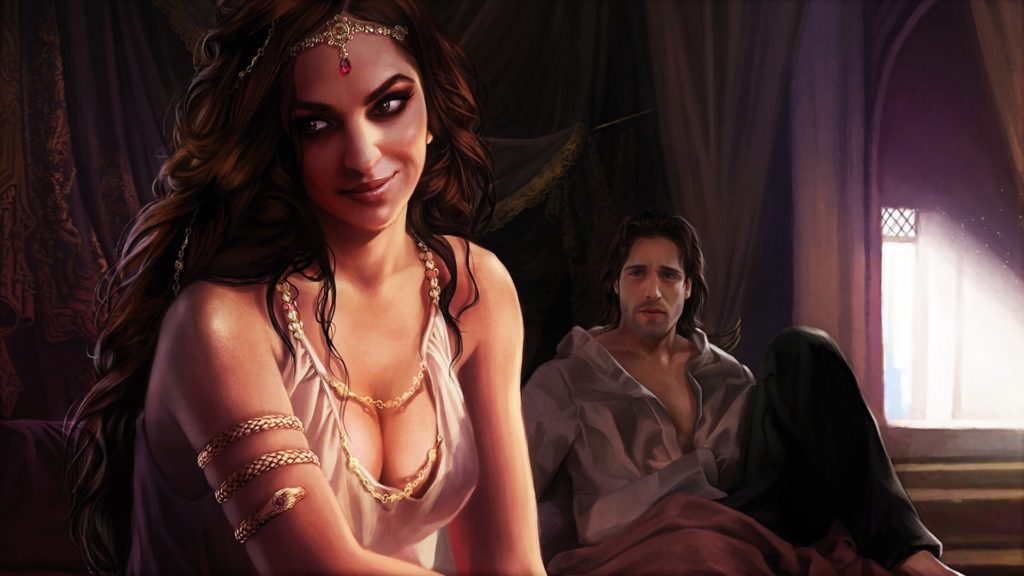
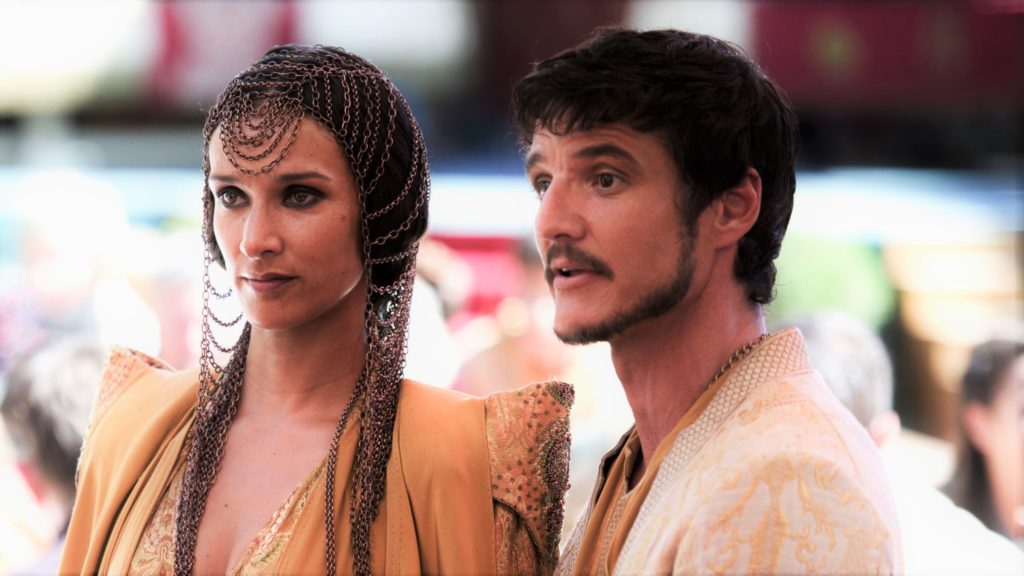
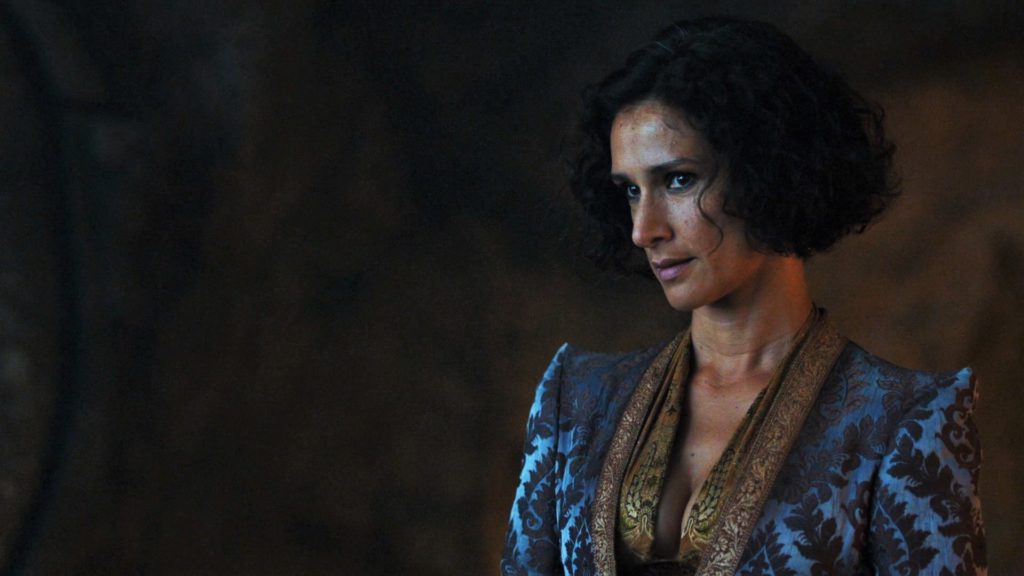
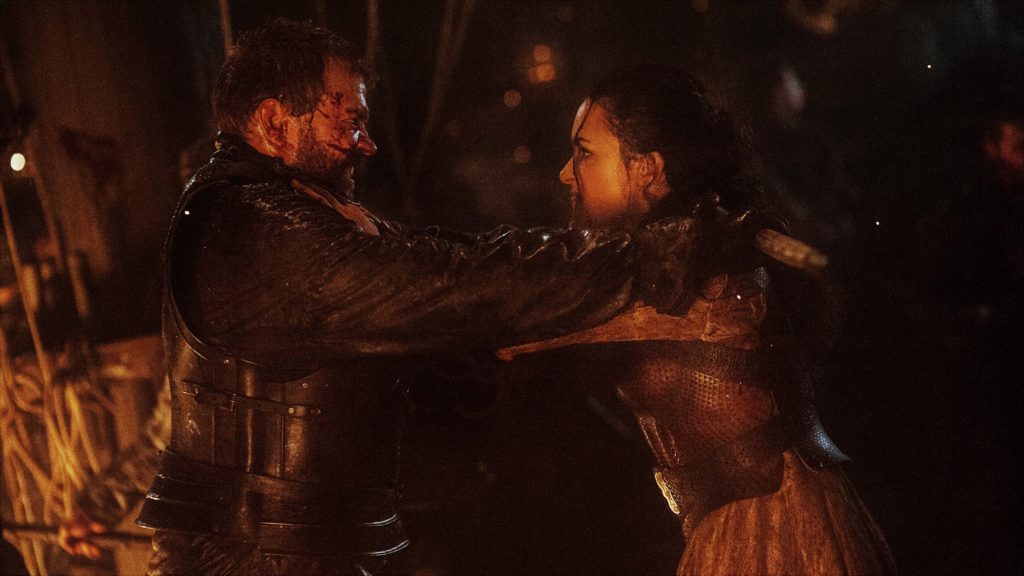
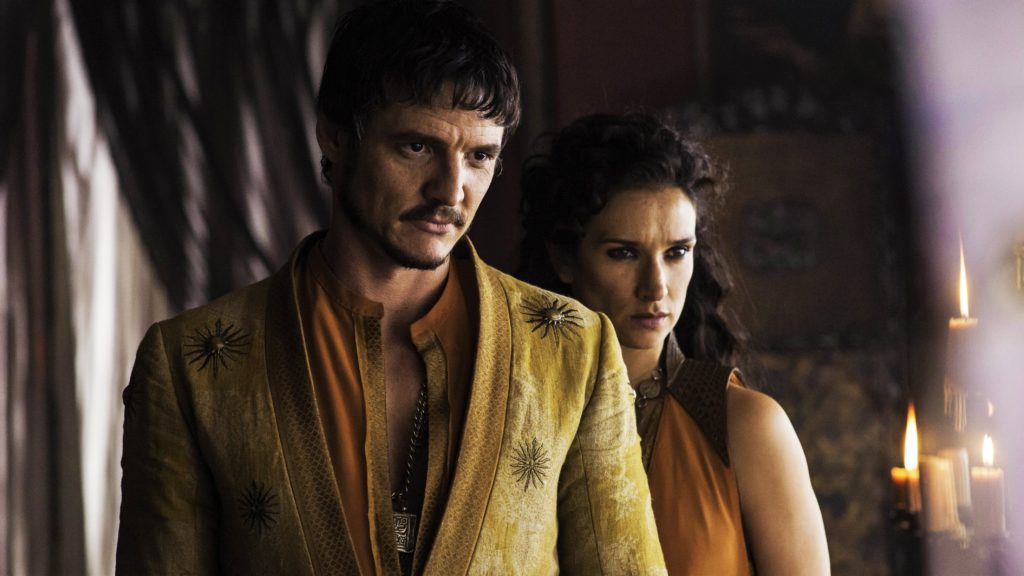
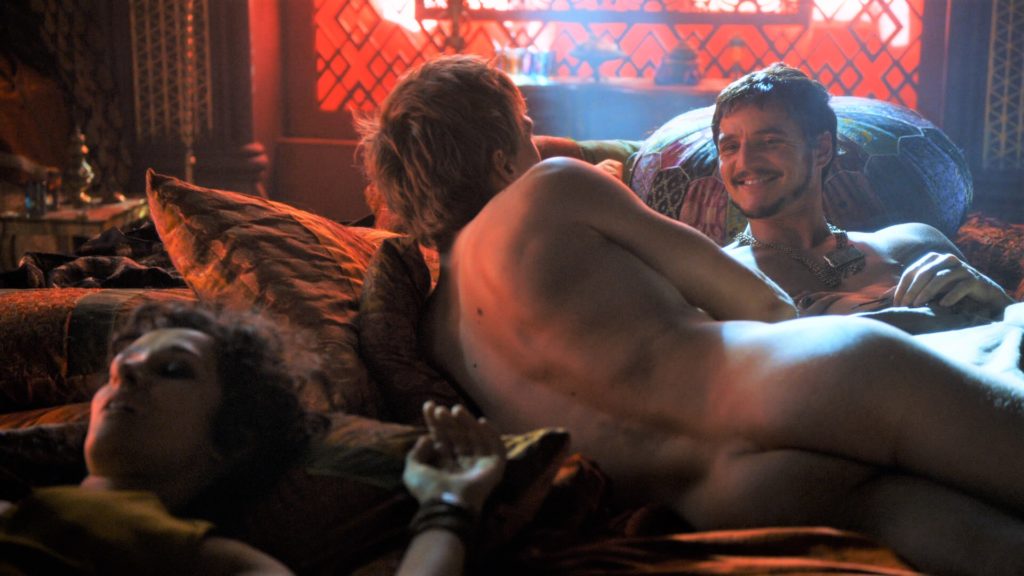
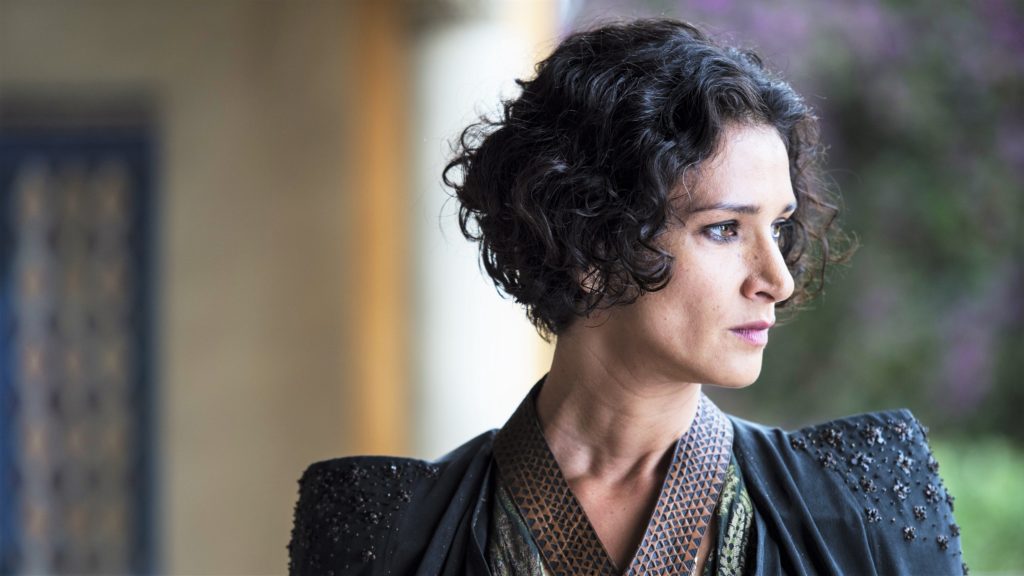
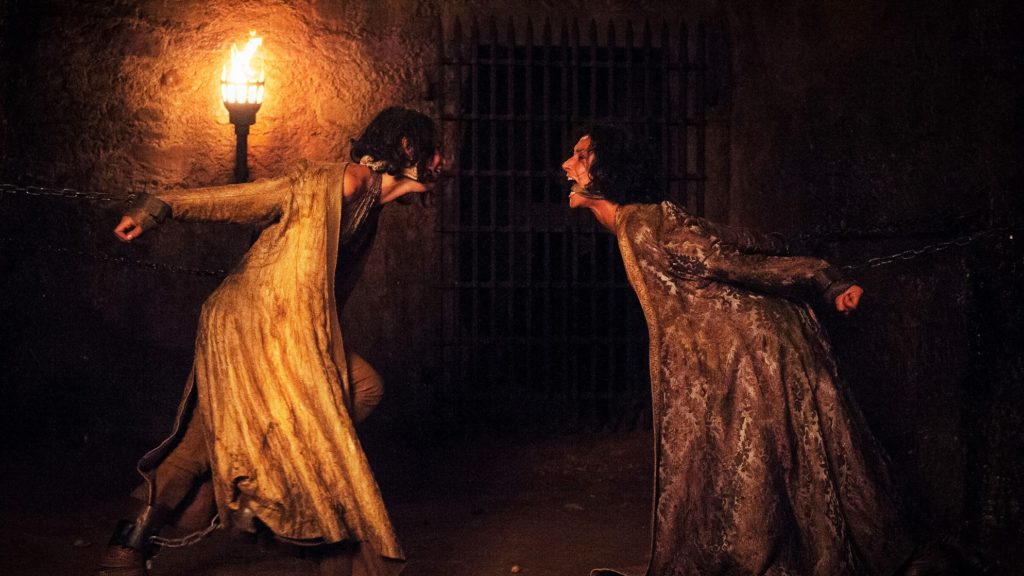
No comments:
Post a Comment